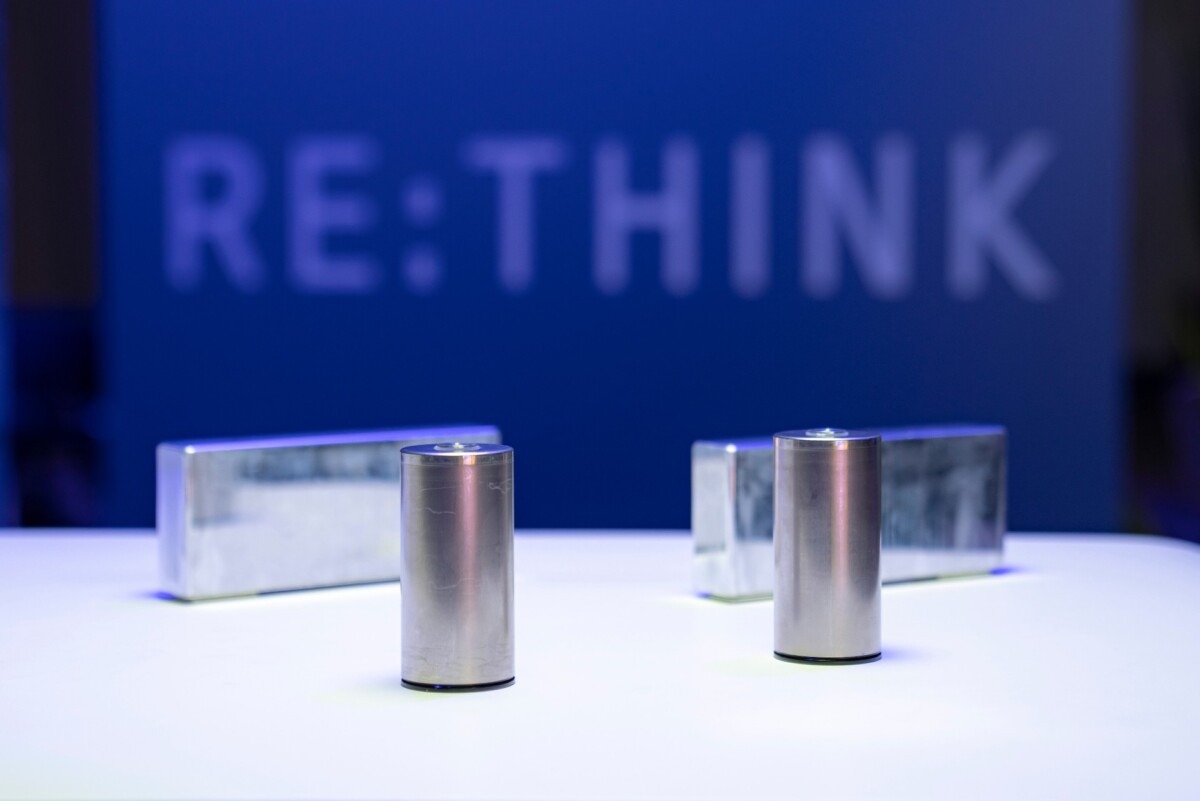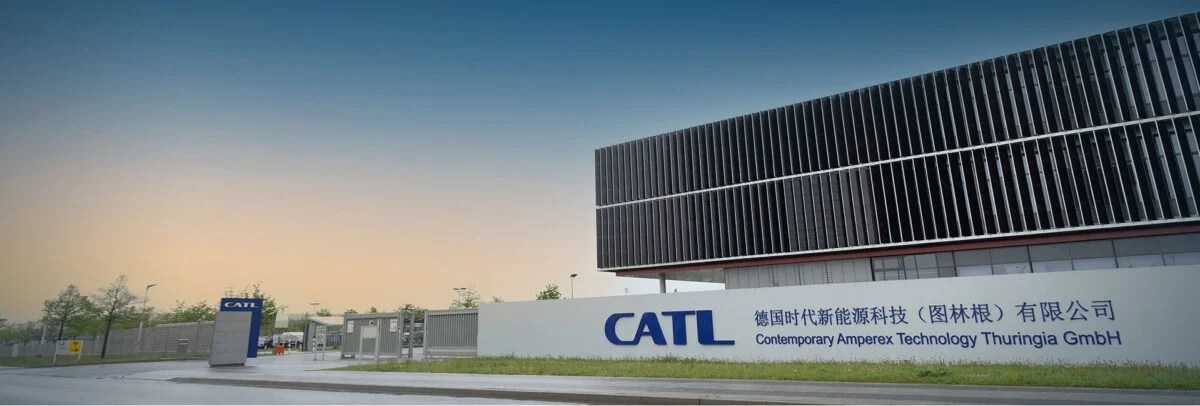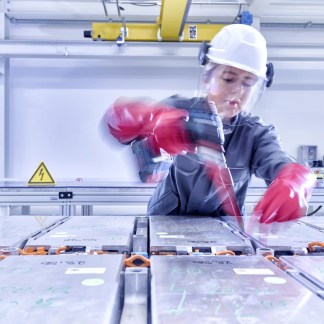BMW announces the renewal of its partnership with CATL, the Chinese battery giant. On the program: a new battery to radically increase the autonomy of electric cars, but also reduce their charging time and their production cost.
The future electric BMW 3 Series should be talked about a lot in 2025. Indeed, it will inaugurate the new Neuer Klass platform, designed entirely for electric cars. The German manufacturer has just unveiled the batteries that will be present within this platform through a press release. And the least we can say is that they will change a lot of things! The rumors were therefore true.
Still made by CATL, but this time in Europe and the United States, in addition to China, future batteries from BMW will look a lot like Tesla’s groundbreaking 4680s. Indeed, cylindrical and more prismatic type, their diameter (46 mm) will be similar to those of Tesla, while there will be two heights: 95 and 120 mm as we learn from the Numerama media present at the presentation.
This new format will, according to BMW, increase energy density by 20%. This is also made possible by more nickel and less cobalt on the cathode, but also thanks to more silicon (silicon) on the anode.
Great autonomy and very fast charging
Finally, BMW announces a 30% increase in range for the model with the longest range. If we read between the lines and take the current BMW i4 and its 593 km of autonomy on the WLTP cycle, this means that the future electric BMW 3 Series would reach a theoretical autonomy of about 770 km ! That is more than the current Mercedes-Benz EQS 450+ with its 725 km and almost as much as the future Zeekr 001 which arrives from 2023.

But the German manufacturer did not stop there. Indeed, these new batteries will also make it possible to considerably increase the charging power. BMW thus announces a charging time reduced by 30%, in particular thanks to the use of 800 volt technology (under 500 amps) which already equips the Hyundai Ioniq 5, Kia EV6 and Porsche Taycan. It should thus onlyabout 20 minutes to go from 10 to 80% charge.
A battery half the cost
The other good news for consumers is the cost savings associated with these new batteries. The manufacturer with the propeller thus advances a 50% figure for battery price compared to the current generation found in particular on the BMW i4.
Knowing that a battery easily costs between 20 to 30,000 euros on an electric car, reducing its price by half should make it possible to make electric cars more affordable. On this subject, the Tesla Model Y could thus cost much less (we are talking about a saving of 5,000 euros) when it is equipped with the famous 4680 batteries instead of the current 2170. The objective being for BMW to ‘have a similar production cost between electric cars and their thermal counterparts.
Six Gigafactories around the world
BMW confirms the rumors and announces that it has signed a partnership with CATL but also EVE Energy for the construction of a total of six Gigafactory: two in China, two in Europe and two in the United States. For North America, a priori another partner will be chosen. Each plant would have a production capacity of 20 GWh per year, for a total of 120 GWh per year.

Either what to be able produce about 1.5 million electric cars per year. Compared to the 2.2 million cars produced in 2021 by the German manufacturer, all engines combined. CATL has already opened a Gigafactory in Germany for all of its European customers.
Batteries that are less harmful to the environment
From an ecological point of view, the new batteries emit 60% less CO2 during their manufacturing phase, from their extraction to their production in the CATL factories. This thanks to the use of recycled materials, but also through the intermediary of the renewable energies put in place for the manufacture of the batteries. And since the battery is the element with the highest carbon footprint on an electric car, this is very good news.
Regarding cobalt, BMW announces that it works exclusively with certified suppliers, in particular to prevent the use of illegal work. But the German company also specifies that batteries of the LFP (lithium iron phosphate) type will also be used, making it possible to do without cobalt and nickel completely. This is already the case for some manufacturers, such as Tesla on its Propulsion models, with the disadvantage of lower autonomy due to lower energy density than for NMA and NCM technologies.
Finally, BMW reveals that it is working on solid-state batteries, which will allow a revolution in battery operation, as we saw in our dedicated file. The manufacturer thus plans to present a prototype before 2025.
To follow us, we invite you to download our Android and iOS application. You can read our articles, files, and watch our latest YouTube videos.


